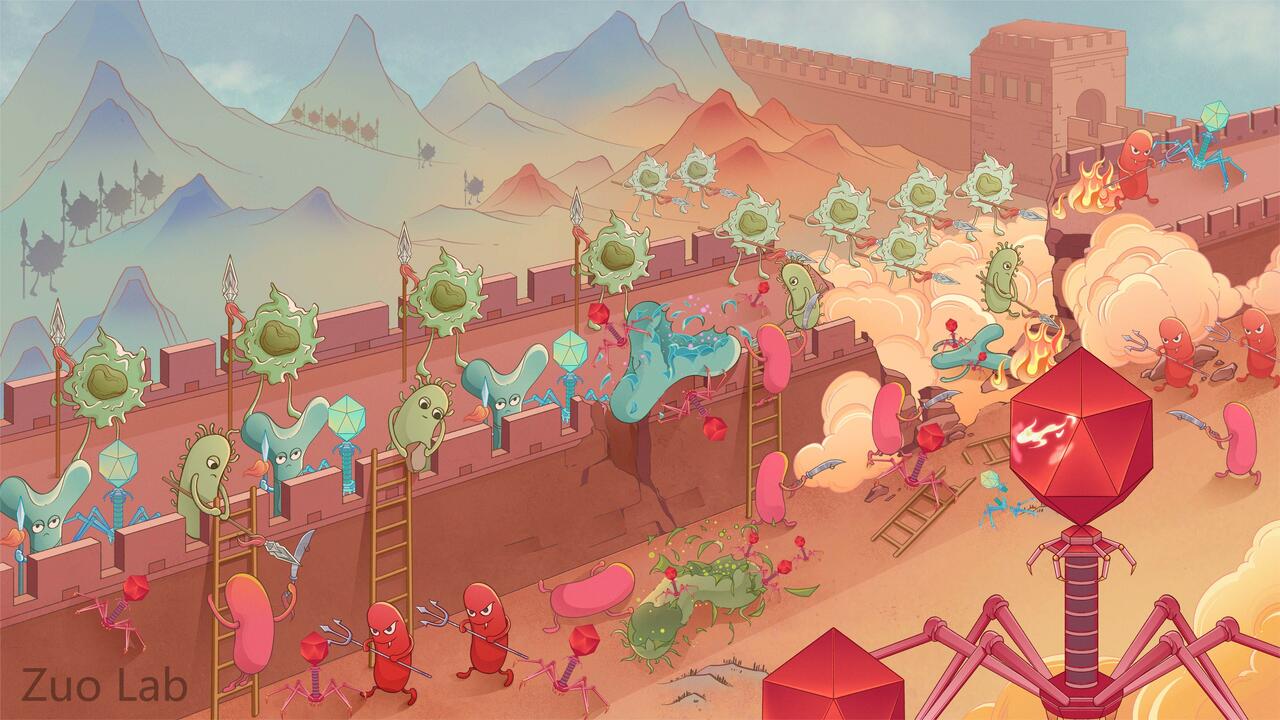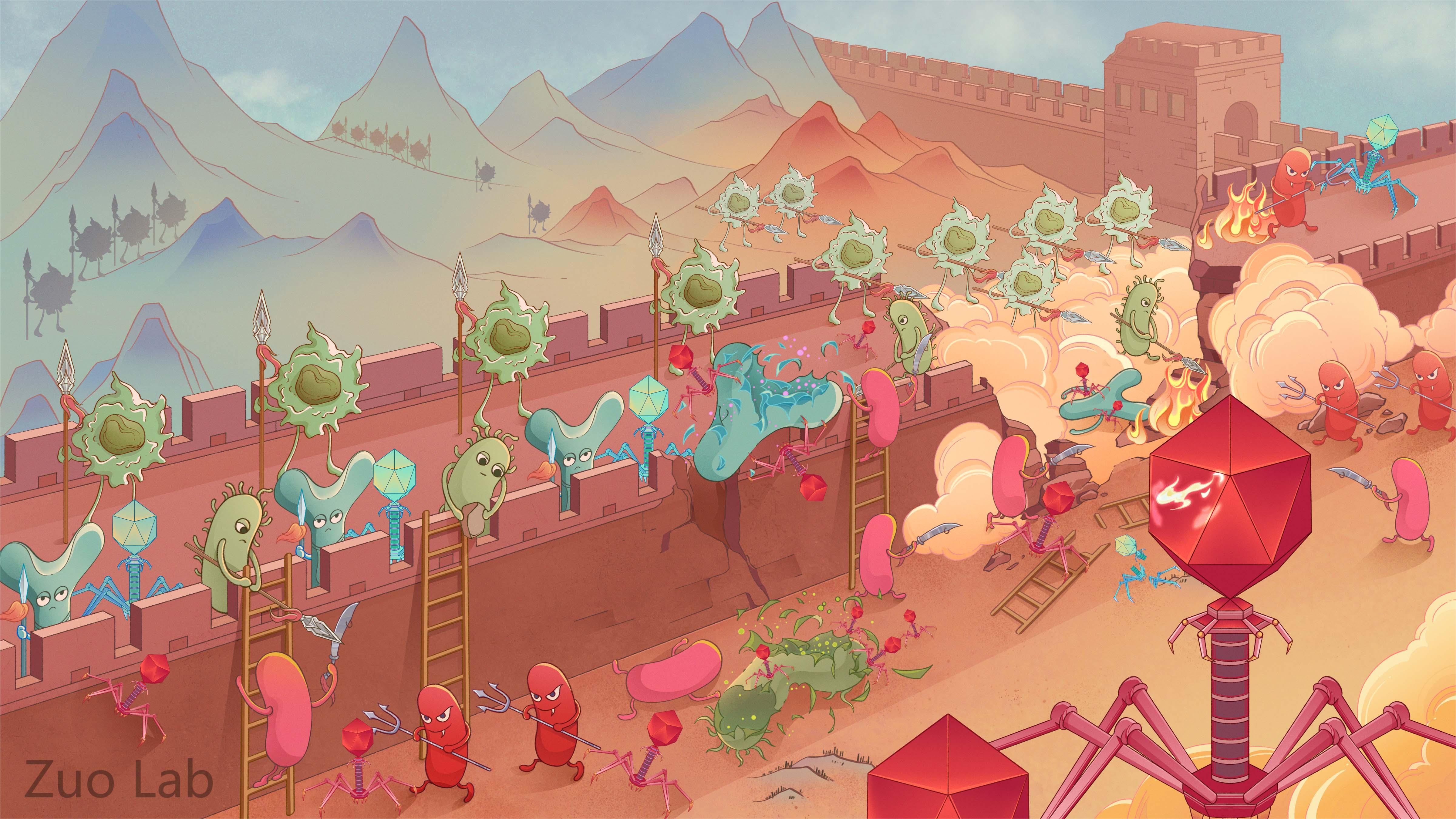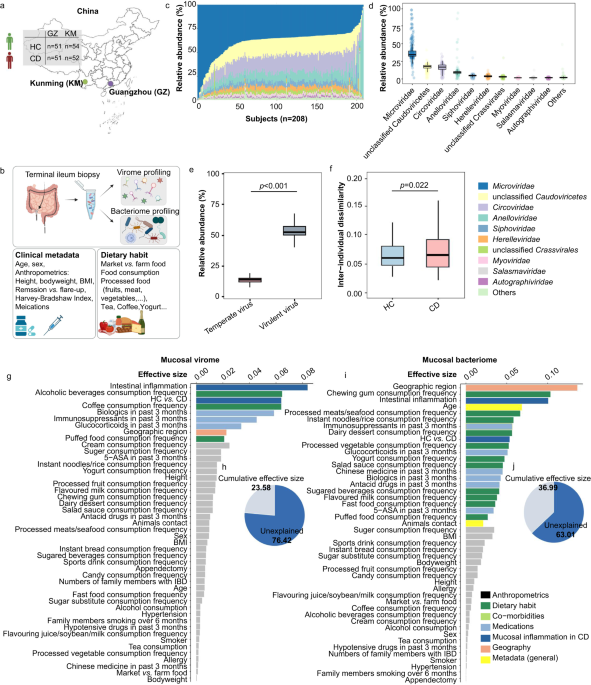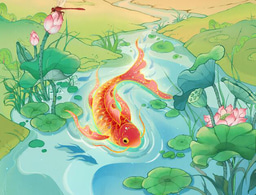Little phages fan the flame of inflammation in the gut
Published in Microbiology and General & Internal Medicine


Crohn’s disease (CD, a subtype of inflammatory bowel disease) is an autoimmune disease marked by periodic bouts of intestinal inflammation. It’s common for patients to experience cycles of flare-ups, remission, and then subsequent flare-ups. Plenty of evidence underscores that disturbance of gut bacteriome evokes intestinal inflammation in CD. However, as another important microbial component of the gut microbiome, the role of virome remain largely unknown, though the total quantity of viral particles in the gut largely exceeds that of the bacteria in the gut. Building on this unknown, we also poise that the mucosal virome may play a more pronounced role than their fecal counterparts, given its physiological primacy and intimacy with the mammalian host. Further prompted by the rule-of-thumb thoughts that bacteriophages and eukaryotic viruses (both are constituent members of the gut virome) are potent regulators of their respective hosts, bacteria and mammalian cells (both are critical members to elicit the ‘inflammation war’), we embarked on this journey to 1) define the composition and function of the mucosal virome in both health and CD, with a special focus on the ileal mucosa, a site of prominent CD affliction, and 2) explore the causality and mechanism of mucosal virome alteration in intestinal inflammation, using reductionistic models, i.e. in mice and in vitro.
We found that the ileal virome was characterized by a reduced presence of both lytic and temperate bacteriophages, especially those targeting bacterial pathogens. We also observed an expanded collection of eukaryotic Torque teno virus variants, particularly in CD patients experiencing a flare-up. Interestingly, the virome-bacteriome ecology in CD ileal mucosa was featured by a lack of Bifidobacterium- and Lachnospiraceae-led mutualistic interactions between bacteria and bacteriophages; these traits were surprisingly more pronounced in CD remission than flare-up. This weakened bacteriome-virome ecological network in CD, especially in remission period indicates that the mucosal viruses/bacteriophages and bacteria may not establish a balanced ecological network and reach a balanced state during the remission phase following a severe active disease course (flare-up) in CD, underlying a latent abnormality in host physiology at the intestinal microecology level may be fueling another flare-up episode of intestinal inflammation.
We therefore generated the hypothesis that disturbances in the mucosal virome might be a pivotal microbial factor in triggering or exacerbating intestinal inflammation in CD. To unravel whether the disturbed small bowel mucosal virome is a cause or a consequence of intestinal inflammation in CD, we isolated ileal virus-like particles (VLPs) from the ileal tissue of both CD and non-CD patients. These VLPs were then administered to mice, followed by the induction of intestinal inflammation. The results revealed that mice that received VLPs from CD patients exhibited a significantly more severe intestinal inflammation than those receiving VLPs from non-CD patients, mechanistically linked to an augmentation of microbial sensing and defense pathways in the intestinal cells, indicating a heightened host response. Interestingly, the severity of colonic inflammation was closely tied to the α diversity of both virome and bacteriome prior to the induction of inflammation, suggesting the presence of a microbial trigger in intestinal inflammation. Upon further exploration, we discovered that the ecology of bacteriome-virome was reshaped by the CD VLPs preceding intestinal inflammation, steering it towards a disease-specific landscape and creates a trans-kingdom network that mirrored what we observed in CD patients. All these findings strongly suggest the significant role of the dysbiosis of the mucosal virome in CD pathogenesis, which propose that restoration of the mucosal virome-bacteriome ecology, even during endoscopic remission of intestinal inflammation, should be considered as an additional therapeutic endpoint in IBD beyond the goal of a resolution of mucosal inflammation at the endoscopic and histologic levels.
In addition, we also explored the influence of current CD medications on the mucosa virome in CD. Compared to immunosuppressants, glucocorticoids, and 5-ASA, biologics showed the most substantial influence in restoring the imbalanced bacteriome-virome ecology. However, its restorative effect on the disordered mucosal bacteriome-virome ecology is still significantly limited. All our results suggest that while current medications do have a slight corrective impact on the CD-distorted bacteriome-virome ecology, their effect is relatively minor. We advocate for more innovative therapeutic strategies, such as fecal virome transplantation and phage therapy, with a therapeutic goal of restoring the mucosal bacteriome-virome ecology in future CD treatment. Strategies focused on restoring the balance of the intestinal bacteriome-virome ecology, especially during the CD remission period, may revolutionize the treatment of CD. We believe that this vibrant field of research holds much promise for the future.
Follow the Topic
-
Nature Communications

An open access, multidisciplinary journal dedicated to publishing high-quality research in all areas of the biological, health, physical, chemical and Earth sciences.
Related Collections
With Collections, you can get published faster and increase your visibility.
Women's Health
Publishing Model: Hybrid
Deadline: Ongoing
Advances in neurodegenerative diseases
Publishing Model: Hybrid
Deadline: Mar 24, 2026


Please sign in or register for FREE
If you are a registered user on Research Communities by Springer Nature, please sign in